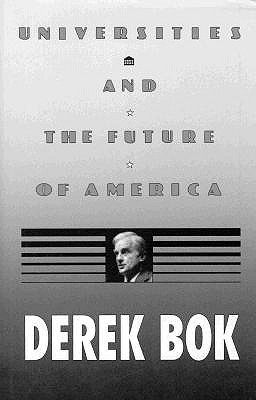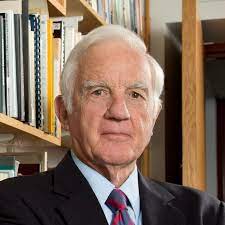

 Duke University Press
Duke University Press
Universities and the Future of America


Key Metrics
- Derek Bok
- Duke University Press
- Hardcover
- 9780822310365
- 8.78 X 5.72 X 0.72 inches
- 0.82 pounds
- Education > Higher
- English
 Secure Transaction
Secure TransactionBook Description
If universities are so important to society and if ours are so superior, one might have thought that America would be flourishing in comparison to other industrialized countries of the world. Yet this is plainly not the case. . . . Our economic position in the world has deteriorated [and] we have climbed to the top, or near the top, of all advanced countries in the percentage of population who live in poverty, commit crimes, become addicted to drugs, have illegitimate children, or are classified as functionally illiterate. In light of these results, it is fair to ask whether our universities are doing all they can and should to help America surmount the obstacles that sap our economic strength and blight the lives of millions of our people.
Having posed this question, Derek Bok reviews what science can do to bring about greater productivity, what professional schools can do to improve the effectiveness of corporations, government, and public education, and what all parts of the university are doing to help students acquire higher levels of ethical and social responsibility. He concludes that Universities are contributing much less than the should to help the nation address its most urgent social problems. A century after the death of Cardinal Newman, many university officials and faculty members continue to feel ambivalent about deliberate efforts to address practical problems of society. And though competition drives university leaders and their faculties to unremitting effort, what competition rewards is chiefly success in fields that command academic prestige rather than success in responding to important social needs.
Bok urges academic leaders, trustees, foundations, and government agencies to work together to help universities realign their priorities so that they will be ready to make their full contribution when the nation turns its attention again to the broad agenda of reform. . . . Observing our difficulties competing abroad, our millions of people in poverty, our drug-ridden communities, our disintegrating families, our ineffective schools, those who help to shape our universities have reason to ask whether they too have any time to lose.
Author Bio
Derek Bok is the 300th Anniversary University Research Professor at Harvard University. He served as the twenty-fifth president of Harvard from 1971 to 1991, and as interim president from 2006 to 2007. His many books include The Struggle to Reform Our Colleges, Higher Education in America, Our Underachieving Colleges, and The Shape of the River (all Princeton).
Derek Curtis Bok (born March 22, 1930) is an American lawyer and educator, and the acting president of Harvard University. He was born in Bryn Mawr, Pennsylvania, and graduated from Stanford University (B.A. 1951), Harvard Law School (LL.B. 1954), and George Washington University (A.M. 1958). He taught at Harvard from 1958, where he served as dean of the law school (1968-1971) and then as university president (1971-1991). Bok currently serves as the Faculty Chair at the Hauser Center for Nonprofit Organizations at Harvard and continues to teach at the Harvard Graduate School of Education. He reassumed the presidency of the university on an interim basis after Larry Summers’ resignation took effect on July 1, 2006. He expects to have the job for about a year.
His wife, the sociologist and philosopher Sissela Bok, née Myrdal (daughter of the Swedish economist Gunnar Myrdal and the politician and diplomat Alva Myrdal, both Nobel laureates), is also affiliated with Harvard, where she received her doctorate in 1970. His daughter, Hilary Bok, is a philosophy professor at Johns Hopkins University.
Source: Princeton University Press and wikipedia.org
Videos








Community reviews
Write a ReviewNo Community reviews